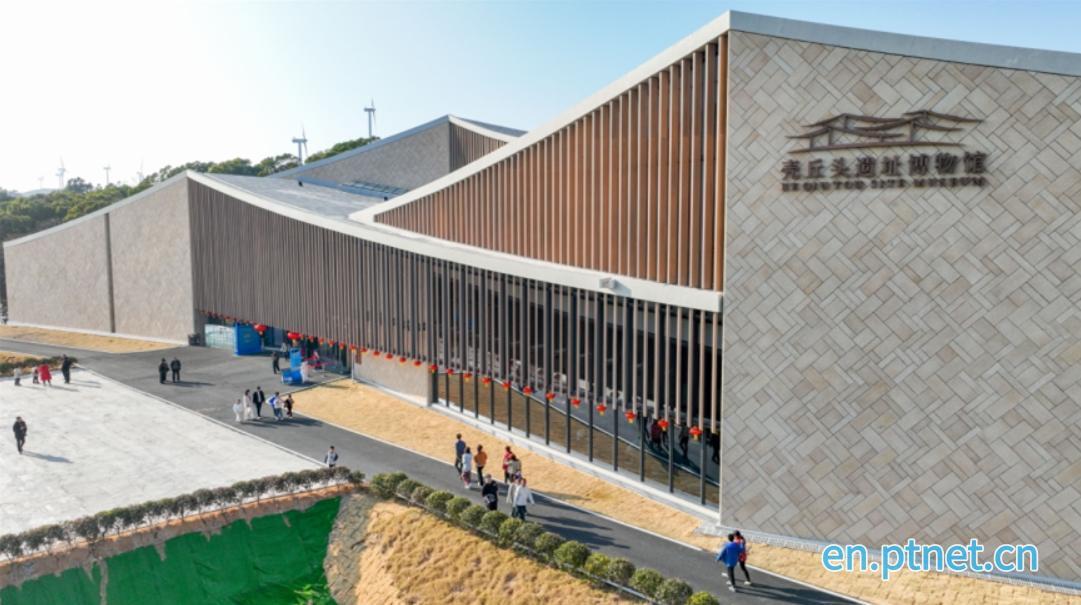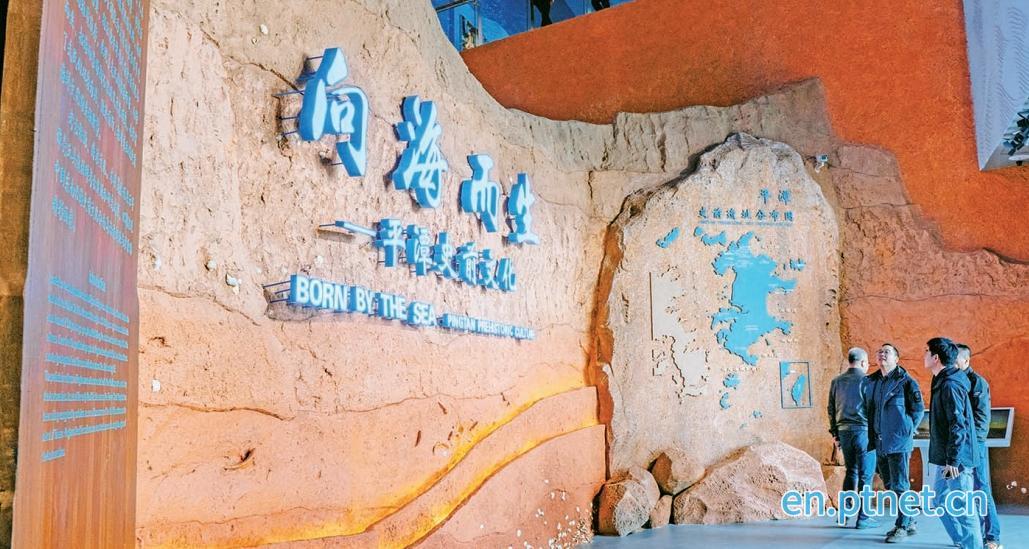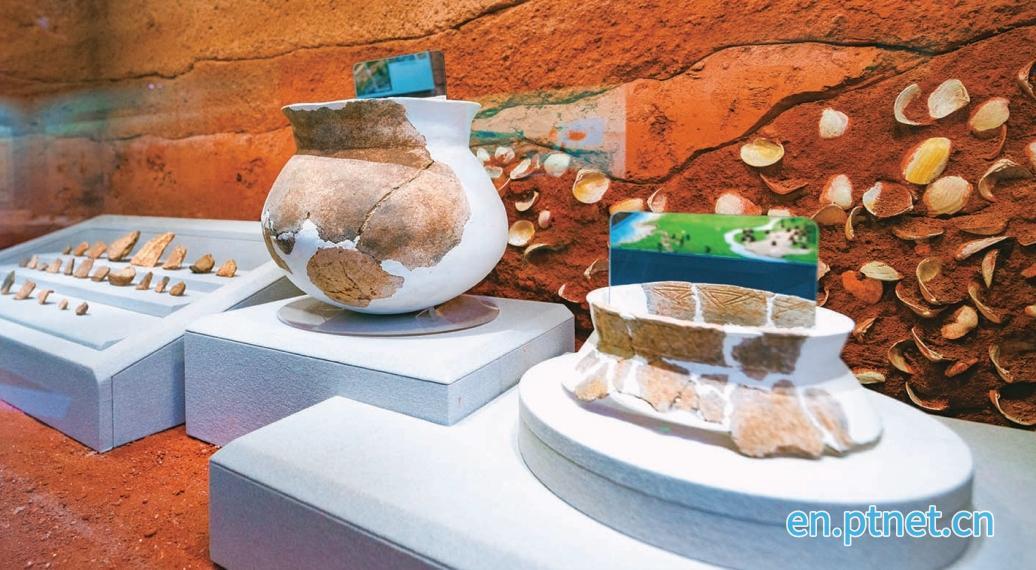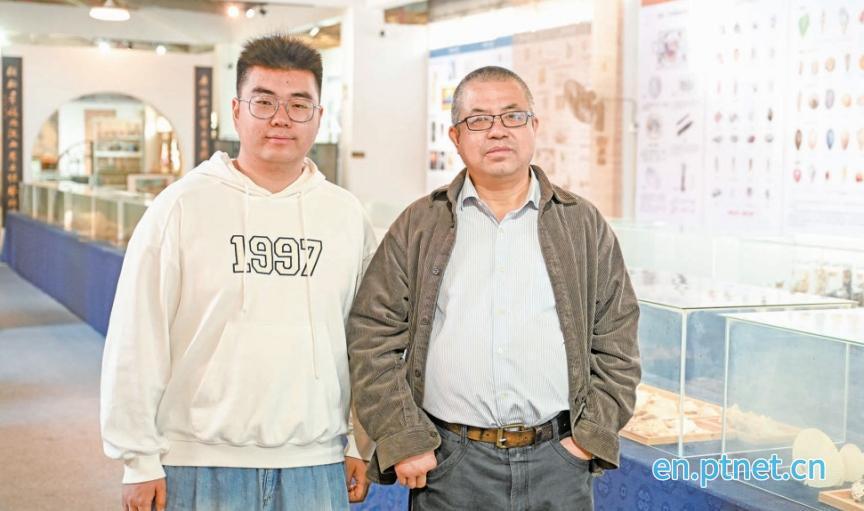Chinese anthropologist Zhao Xudong leads field study to trace the legacy of Austronesian maritime civilizations in Pingtan
en.ptnet.cn | Updated:2025-05-06 | Lin Kongbo, StephaniePingtan, an island off the coast of Fujian and the Chinese mainland's closest point to Taiwan, has become a crucial hub for Austronesian cultural research. Recently, Professor Zhao Xudong of Renmin University of China led a research team to the island for an extensive field study, aiming to uncover the enduring roots of oceanic civilizations and explore the cultural depth of the Austronesian-speaking peoples.
The visit followed the inauguration of the Institute for Austronesian and Oceanic Civilization Studies—hosted by Renmin University and supported by the Tanshishan Site Museum—alongside a major academic symposium on Austronesian civilization, held in Fuzhou.
During the field trip, Zhao and his team explored several cultural landmarks across Pingtan, including the International Research Center for Austronesian Archaeology, the historic Nianggong Ferry Wharf, the 68-Nautical-Mile scenic area, the Pingtan Shell Carving Art Museum, and the culturally rich North and South Streets. At the Keqiutou Site excavation, the team engaged with archaeologists to gain firsthand insights into the prehistoric heritage of the Austronesian peoples.
"This journey was more than worthwhile," said Zhao, professor and director of the Institute of Anthropology at Renmin University. At the Guishan site, he marveled at the stratified layers of earth shaped by millennia of cultural activity. "These sedimentary layers unfold like the pages of a book, each stratum telling stories of the tides of time," he noted, reflecting on the significance of the pottery shards and cultural remnants unearthed at the site. "It feels like stepping into the long current of history, into the soul of a civilization shaped by the sea."

Keqiutou Site Museum

Interior view of the exhibition hall at Keqiutou Site Museum

Restored pottery on display at the Keqiutou Site Museum
At the Keqiutou Site Museum, the team examined monumental columns carved with Austronesian motifs of sun, waves, and stars, as well as cultural relics such as wooden sculptures, ceramics, shell ornaments, and traditional costumes from the Pacific. "Through these rich archaeological remains, the brilliance of an ancient maritime civilization comes alive," Zhao said. "You can almost see the grand migration of Austronesian ancestors across the Pacific unfolding before you."
Zhao, a leading scholar of marine and cultural anthropology and a disciple of renowned Chinese sociologist Fei Xiaotong, emphasized Pingtan's unique academic value. "Pingtan is not just a starting point for prehistoric seafaring—it should serve as a bridge for modern cultural tourism, cross-Straits integration, and economic exchange," he said.
Over the years, Zhao's research has focused on the transformation of oceanic civilizations. His team has previously conducted ethnographic investigations along the Maritime Silk Road in Ningbo, Quanzhou, and other coastal cities. He believes that island anthropology must examine the distinctive cultural systems and social structures of maritime communities, and Pingtan, with its rich Austronesian heritage and strategic location, provides an ideal setting for such research.
Zhao also called for the development of humanistic tourism products rooted in cultural heritage. "Good design isn't just about packaging. It must come from the cultural context itself," he explained. Citing examples like Pingtan's 'Wind Path' and the Austronesian Research Center's Easter Island-inspired sculptures, Zhao emphasized the need to turn cultural heritage into engaging tourism offerings.

Zhao Xudong (right) and his student Zhang Ziwei visiting the Pingtan Shell Carving Art Museum
His doctoral student Zhang Ziwei echoed the sentiment. A PhD candidate in anthropology at Renmin University, Zhang has been stationed in Pingtan since 2023 for his dissertation research on marine and art anthropology. "This has been a journey where knowledge and experience meet," he said. Immersing himself in local life, learning the Pingtan dialect, and building relationships with villagers have all become part of his research. "The sea is more than a setting—it's a cultural lifeline."
"The locals welcomed me warmly," he said. "Cultural continuity is essential for tourism to thrive. Pingtan's deep Austronesian heritage and folk traditions hold enormous potential."
At the edge of the 68-Nautical-Miles Scenic Area, Zhang gazed out at the sea alongside his teammates. "I will continue my fieldwork here. There's still so much more to learn," he said, his eyes gleaming with purpose.

